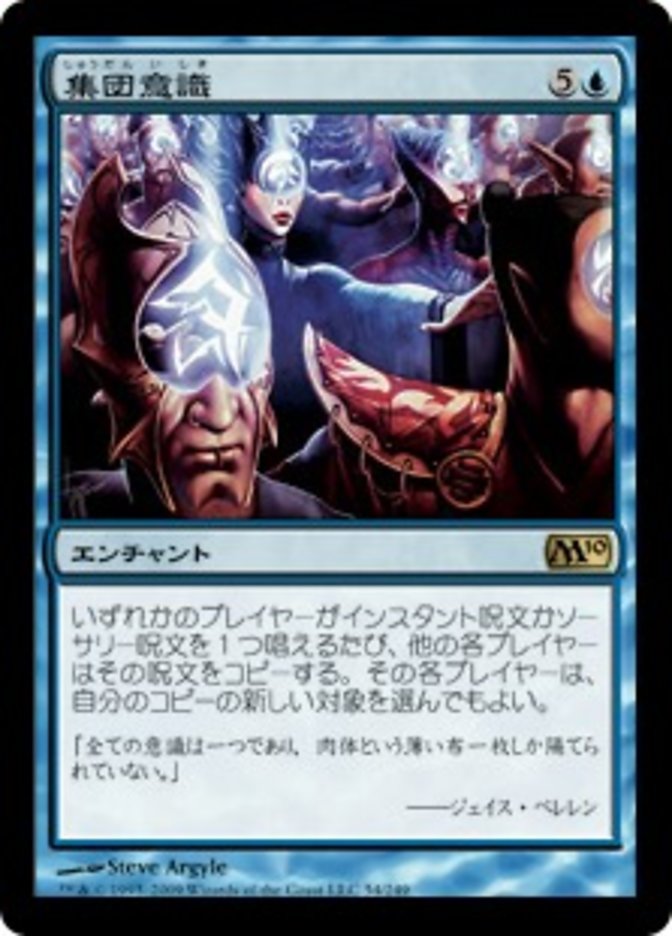メインメニュー
🔍カード検索 
集団意識
エンチャント
いずれかのプレイヤーがインスタント呪文かソーサリー呪文を1つ唱えるたび、他の各プレイヤーはその呪文をコピーする。 その各プレイヤーは、自分のコピーの新しい対象を選んでもよい。
フォーマット
スタンダード : 不可パイオニア : 不可モダン : 可能レガシー : 可能ヴィンテージ : 可能パウパー : 不可統率者戦 : 可能デジタル専用フォーマット
アルケミー : 不可ヒストリック : 不可タイムレス : 不可リミテッド評価値
リミテッド評価値が存在しません。
カード裁定
2009/10/01
原文Hive Mind's effect is mandatory. Each other player must copy the spell whether they want to or not.
2009/10/01
原文Hive Mind will copy any instant or sorcery spell, not just one with targets.
2009/10/01
原文If a player casts an instant or sorcery spell, Hive Mind's ability triggers and is put on the stack on top of that spell. Hive Mind's ability will resolve first. When it does, it creates a number of copies of that spell equal to the number of players in the game minus one. First the player whose turn it is (or, if that's the player who cast the original spell, the player to that player's left) puts their copy on the stack, choosing new targets for it if they like. Then each other player in turn order does the same. The last copy put on the stack will be the first one that resolves. (Note that the very last thing to happen is that the original spell resolves.)
2009/10/01
原文The copies that Hive Mind's ability creates are created on the stack, so they're not "cast." Abilities that trigger when a player casts a spell (like Hive Mind's ability itself) won't trigger.
2009/10/01
原文Each copy will have the same targets as the spell it's copying unless its controller chooses new ones. That player may change any number of the targets, including all of them or none of them. If, for one of the targets, the player can't choose a new legal target, then it remains unchanged (even if the current target is illegal).
2009/10/01
原文If the spell that's copied is modal (that is, it says "Choose one —" or the like), the copy will have the same mode. A player can't choose a different one.
2009/10/01
原文If the spell that's copied has an X whose value was determined as it was cast (like Earthquake does), the copy has the same value of X.
2009/10/01
原文A copy's controller can't choose to pay any additional costs for the copy. However, effects based on any additional costs that were paid for the original spell are copied as though those same costs were paid for the copy too.
2009/10/01
原文If a copy says that it affects "you," it affects the controller of the copy, not the controller of the original spell. Similarly, if a copy says that it affects an "opponent," it affects an opponent of the copy's controller, not an opponent of the original spell's controller.
data from gatherer

